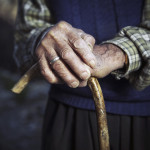Half of people living with HIV in the United States are older than 50, and they face unique challenges as they age. A brief titled “Strategies to Improve the Health of Older Adults Living With HIV” explores these issues and offers resources for AIDS service organizations and health care providers.
Released by the National Center for Innovation in HIV Care, a project of The Fenway Institute in Boston, the report can be read and downloaded for free.
According to a Fenway press release, the report outlines key steps that providers and organizations can take to ensure that the older HIV-positive population feels welcome. As listed in the executive summary, the steps include:
- Train all staff in the unique needs and experiences of older people living with HIV
- Screen and treat for comorbidities, depression, and cognitive decline
- Screen for substance use, including tobacco use, and promote treatment
- Promote sexual health and HIV/STI prevention with this population
- Strengthen social support networks and reduce social isolation.
Older people living with HIV “exhibit a great deal of resiliency and strength,” the brief notes. “In fact, many ASOs and government HIV prevention and care programs would not exist were it not for the vision and leadership [many of these people] exhibited in the early years of the AIDS epidemic.”
One way to ensure this population remains healthy, according to the report, is to reduce the isolation they often feel. “Group activities, either held within a health care organization or conducted by a partner site, could increase this population’s access to social support,” the brief suggests. “Topics—such as dating and being sexually active while living with HIV, medication adherence, dealing with stigma (from family, friends, coworkers, and health care professionals), and navigating insurance issues—can provide clients with more information on pertinent issues and create a space where individuals can connect with those who are facing similar difficulties.”







Comments
Comments